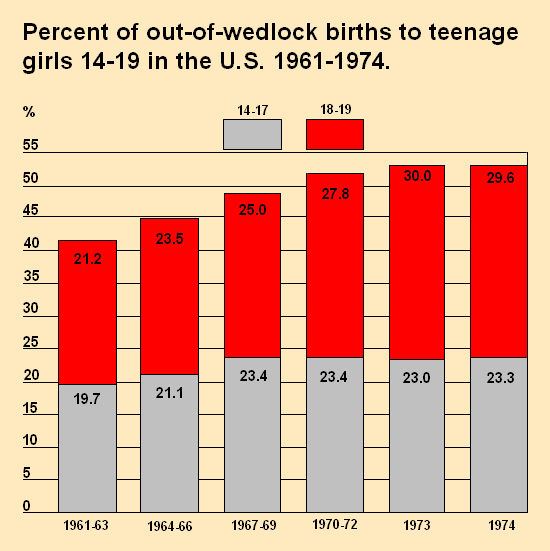The sixties saw a noisy confrontation between sex educators who wanted to introduce more than birds, bees
and hamsters into the curriculum and people who felt that parents alone should tell their children the facts of life.
Now that the furor has died down, some question the effectiveness of those sex education programs that remain.
Here's what you can do to make sure your children receive the information they need in this sensitive area.
One father we know recently pulled a Watergate in his own home, taping a conversation between himself and his two school-age sons. Here's how it went:
"You know, you two asked me this morning how we get children-remember?"
"Yeah."
"Well, remember how we talked about the similarities and differences between animals and human beings? You know that every animal has a different number of chromosomes? And every animal has a mother and a father? He gets half of his chromosomes from . . ."
". . . the female. Right?"
"Right. And half from the father."
"But, Daddy, how does he get half the chromosomes from the mother and half from the father?"
"I can't quite hear you — your mouth's full of bread."
"I mean, you know, dogs, they breed. How do you and Mommy breed?"
"That's the question, isn't it . . ."
"Yeah, that's the question we asked this morning."
"'Well, couldn't you guess?"
"Nope."
"Well, you know, Bones out there in the yard — Tuffy is his mother and he looks a lot like his mother and Bandit is his father, so it would be silly for you guys to think that I could be your father unless you had some of my chromosomes. Right? You are one-half me and one-half your mother."
"Oh."
"You remember meiosis and mitosis, don't you? lt works in people just like in animals. Now does that answer your question?"
"Well — you still haven't told me about how I get half of you and half of Mommy."
"Okay — you know how Tufly has a special place in her belly called a uterus where her puppies grow? And Mommy has a special place where you grew? And Tuffy feeds her puppies milk just like Mommy fed you when you were born?"
"Yes . . ."
"So you see how similar we are to animals?"
"But, Dad, that still doesn't answer our question. How do I get half of you and half of Mom?"
"Well, you have to put it there."
"But how???!"
"How . . ."
"Yeah, that was our question all the time."
"You mean, how does a man put his seed in the woman?"
"Right!"
"Well, you didn't ask that."
"Well, that's what we meant; you Just didn't know what to say." (Giggle)
"Oh, well, that's easy to answer.
Uh, when you grow older, a little boy's body starts to change . . ."
A Common Problem
This father (an open-minded type who has no trouble at all talking about sex with his adult buddies) was shocked when he listened to the instant replay ("I couldn't believe it — I was so embarrassed!"'). He eventually got the necessary information across, but not without a lot more hemming, hawing, and groping for words.
Many of us parents share his problem. While we want to give our kids the benefit of our knowledge and approach to the "facts of life," many times actually getting down to doing it means overcoming an almost insurmountable emotional obstacle. For the most part, we didn't learn about sex from our parents, but from friends, the medical encyclopedia in our local library, or the centerfold of some under-the-counter publication.
And since our parents didn't really tell us the facts of life, we don't know how to go about telling our children. In spite of the overwhelming hard sell sex gets in the media, a lot of kids today still don't know what it's all about. They may be more sexually active than the previous generation, but their actual knowledge about their bodies and the consequences of what they're doing is woefully inadequate.
As the box on the next page shows, a lot of college-age young people today had to pick up whatever knowledge they possess from the usual unofficial sources: friends, encyclopedias, pornographic novels, and so on.
And since the sex-education controversy m the U.S. in the sixties, many American school systems have shied away from developing and presenting really comprehensive sex-education programs. The programs that do exist don't reach all the kids, and the young people that attend such classes may not retain all they're taught.
But it's not just the physiology or "plumbing diagrams" that kids don't have a chance to learn. Human sexuality is something that cannot be divorced from its place in the overall framework of society. Handling one's sexuality wisely and responsibly comes under the heading of morality, and morality isn't a subject that most schools teach.
A moral perspective — the way a child relates to life — is usually best imparted to a child by his parents during his very early development. But it's difficult to compete with all the other influences that bombard a child daily, and the older a child gets, sometimes the harder it becomes to communicate. (For example, one nineteen-year-old girl recalls: "When my mother told me about menstruation, I already knew and told her to forget it.")
So how can parents beat the rest of the world to the punch, so to speak? How can they make sure they're the ones who impart the right kind of wholesome, responsible attitudes about sex to their children?

source: 11 million teenagers. the alan guttmacher institute, 1976
|
Over half the out-of-wedlock births
in the United States are to teenagers.
This chart shows the tragic proportions
of this epidemic of illegitimacy.
|